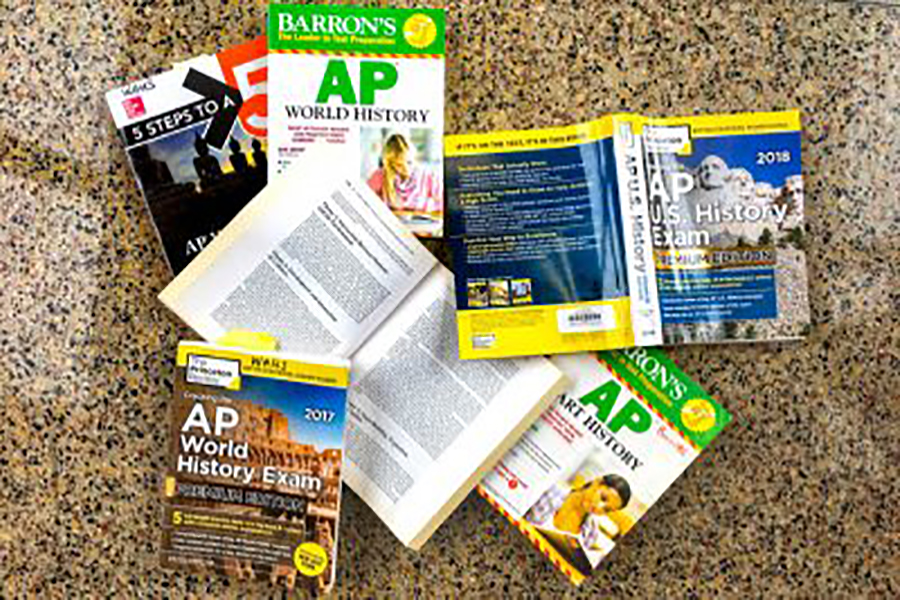Does Registering Early for AP Tests Lead to Higher Scores?
Credit: Abigail Connelly
March 9, 2020
A decision in 2018 by the College Board to require early downpayment for AP exams has led to much frustration for high school students and administrators alike. In the 2017-2018 school year, the College Board piloted a new program system that requires students to commit to taking an AP test by November 15th, which is four months earlier than the previous spring deadline. Western was one of the schools that participated in the pilot program.
As a courtesy to teachers of AP courses, College Board offered a bank of 15,000 previously written AP-style questions, more detailed course and testing descriptions, and a sample course outline that coordinates with the months leading up to the AP test dates. Additionally, teachers were able to register their students in a personalized AP online classroom, called “My AP”, where students could test their knowledge using personal progress checks assigned by their instructor.
The following year, the pilot program became policy, with early deadlines becoming a grim reality for many students and teachers. Administrators are now required to take up exam fees in early November, rather than the previous Spring payment deadline. A non-refundable deposit of $40 is now required by early November for all students wishing to take the AP exams in May.
Students can also choose to pay for their exams in full, which cost a total of $94 for a single exam. Two new fees were also introduced this year, including a late registration fee of $40 for students who fail to meet the early November deadline, as well as an unused/canceled exam fee for students who do not choose to take their test (which they have previously paid for and reserved a spot). This late registration fee has risen since 2017, jumping from $15 to $40.
Jim Jump, the academic dean of St. Christopher’s School in Richmond commented on the matter on the Inside Higher Ed online publication: “To no one’s surprise, the change has led to anger and anxiety among AP coordinators who will now have to oversee AP registration at the same time they are trying to help seniors navigate the college application process and also serving as unpaid agents for a different division of the College Board by administering the PSAT.”
School begins for many U.S. students in late August or early September, meaning that the early deadline correlates with roughly a month’s worth of teaching in an AP class completed. For some students, their teacher may not have been able to administer a unit exam for the AP class before the AP sign up rolls around, meaning that the student is somewhat unaware of the inner workings of the class.
To make matters more complicated, the College Board justified their early payment deadlines by stating that early commitment to the AP test will ultimately result in a better score on test day, especially for students from lower-income backgrounds. Corresponding data from the 2017-2018 pilot program is proudly displayed on the College Board’s update page, highlighting a supposed 12% increase in scores of 3 or more on the AP exam taken by “underrepresented minority students” in a survey pool of 4000 students from 100 different schools. However, a grand total of 573,000 students registered for AP exams in over a thousand United States schools for the 2018-2019 school year. The College Board also reported that almost 2.9 million students took over a million AP exams in 2019.
Though there was a 33% increase worldwide in the number of lower-income students taking AP exams in 2018, there was only a 20% increase in the number of these lower-income students receiving a score of 3+. Overall, the percentage of lower-income students who received a score of 3 or above on their AP exam decreased from 39.7% in 2017 to 35.7% in 2018.
This 2018 data released by the College Board does not seem to positively reflect their claims and ultimately serves to bolster the idea that early registration is not the key to success in AP exams. Despite the negative feedback from administrators and test preparation organizations, the College Board will continue to implement the early registration practice and additional fee charges in the foreseeable future.
AP® is a trademark registered by the College Board, which is not affiliated with and does not endorse The Western Hemisphere.









